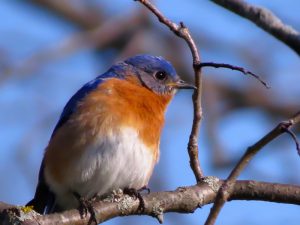HYANNIS – Local wildlife officials are expressing concerns about a recent decision by the Trump Administration to weaken a 100-year-old law protecting birds.
The Interior Department notified federal wildlife police not to enforce the Migratory Bird Treaty Act when birds are killed as the result of an activity as long as there was no intent to harm birds.
An example given by the department said a person who destroyed a building like a barn knowing that it had baby owls in nests inside would not be liable for killing them, as long as the main action did not an intent to kill the owls.
The law was first enacted in 1916 to protect migratory birds between the U.S. and Great Britain, acting on behalf of Canada.
The statute makes it unlawful without a waiver to pursue, hunt, take, capture, kill, or sell birds listed as migratory birds with more than 800 species on the list.
The U.S. Fish and Wildlife Service issues permits for otherwise prohibited activities under the act, including permits for taxidermy, falconry, propagation, scientific and educational use, and depredation. An example of depredation would be the killing of geese near an airport, where they pose a danger to aircraft.
Oil companies would most likely benefit the most from the recent policy change as they have been responsible for about 90 percent of incidental bird deaths prosecuted under the act.
“In Massachusetts right now, 30 percent of breeding birds are currently in decline and are in need of more protection – not less protection,” said Jack Clarke, Massachusetts Audubon Society’s Director of Public Policy & Government Relations.
Mass Audubon helped pass the Migratory Bird Treaty Act through lobbying efforts.
“It’s worked to protect millions of birds,” Clarke said.
Mass Audubon has petitioned the Interior Department to reverse its decision.
Clarke believes companies and individuals whose negligent actions lead to the death of birds should be penalized.
“We’re deeply, deeply concerned that this action by Interior will discourage companies from taking reasonable precautions to safeguard birds,” Clarke said.
More than 1 million birds were killed after the Deepwater Horizon oil spill off the coast of Louisiana. BP pleaded guilty to violations of the act and paid $100 million in damages.
“The funds are still being used to restore habitat for other birds,” Clarke said.
There is also proposed legislation in Congress that codify the Interior Department’s interpretation of the act and permanently end the department’s ability to prevent major bird mortalities.
Mass Audubon is working with members of the state’s Congressional Delegation to defeat the legislation. The organization is also working with Massachusetts Attorney General Maura Healey, other Attorney’s General, and environmental organizations who have filed a court complaint against the decision.
Clarke said local residents can help by echoing their concerns.
“Tell the Attorney General, Maura Healey, that you have her back and that she is doing the right thing,” he said.
He also said Cape residents also need to contact the offices of Congressman William Keating, and Senators Elizabeth Warren and Ed Markey to express their concerns.

























